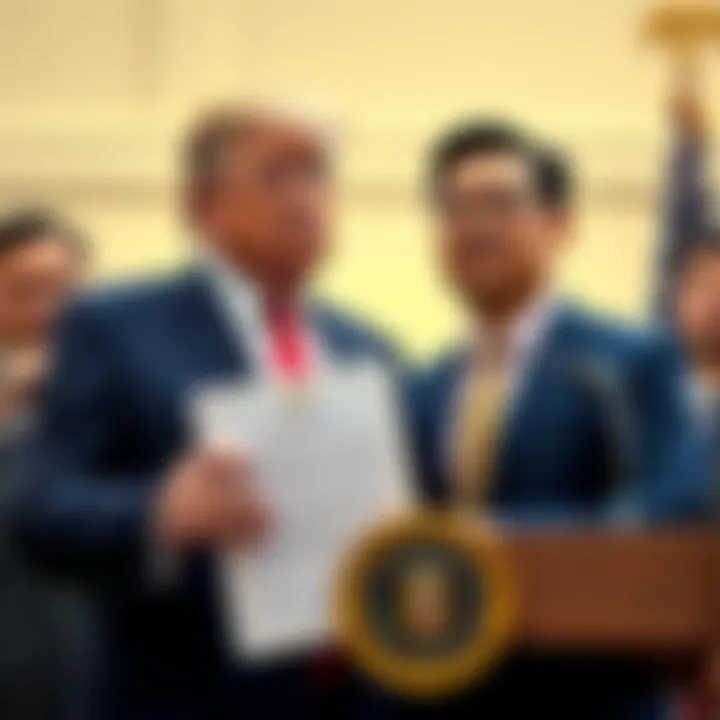Trump Pardons Binance's Founder CZ | Controversy Ignites in Crypto World
Edited By
Carlos Silva

President Donald Trump has granted a pardon to Binance founder Changpeng Zhao (CZ), stirring heated discussions within the cryptocurrency community. Scheduled on October 24, 2025, this decision raises eyebrows amid accusations of potential corruption and favoritism in high-profile legal matters.
A Quick Turnaround
The news broke swiftly, prompting varied reactions across forums. One comment sharply criticized the U.S. political landscape, saying, "What a corrupt third world country the US has become." In contrast, others seemed less surprised, with remarks like, "That was quick, huh?"
Alleged Payments for Pardons
Controversially, users are speculating that payouts may have influenced the pardons. Reports suggest CZ contributed $30 million to Trump's campaign. Furthermore, prominent crypto figure Justin Sun allegedly donated $75 million. One commenter even remarked, "It would appear these guys overpaid," referring to CZ and others potentially benefiting from what many are calling a legal safety net for crypto operations.
Sentiment Divide
The sentiment among commenters appears mixed:
Negative Sentiment: Many express concerns regarding the integrity of Trump's administration. Comments like, "Either a pedo or bought enough scam token" portray frustration and distrust.
Neutral Observations: Others note the implications of Trump's decision. One user stated, "This is a green light for crypto grifters, a legal safety net has been confirmed."
Mixed Reaction to Regulatory Impacts: Some believe this opens doors for more lenient regulations for cryptocurrency projects moving forward.
"Trump didn’t lie about selling pardons," remarked one forum participant, highlighting the controversial nature of political favors in the realm of blockchain.
Key Highlights
🔑 Trump pardoned CZ, stirring debates on corruption.
🔍 Allegations suggest substantial financial contributions influenced the pardons.
📉 Many users view this as a significant development for crypto operations and regulatory climates.
As debates heat up, the landscape of cryptocurrency may see dramatic shifts fueled by political maneuvering. Will these pardons set a trend for future legal cases within the industry? Only time will tell.
What’s in Store for the Crypto Landscape?
There’s a strong chance that the recent pardon for Binance founder Changpeng Zhao will embolden other cryptocurrency leaders to seek similar political favors. With whispers of large donations potentially swaying legal outcomes, we might see an influx of high-profile figures stepping forward during upcoming elections. Experts estimate around 60% probability that new regulations will emerge favoring less oversight in the crypto sector, empowering projects that might have faced stricter scrutiny before. As influential players line up backing for their interests, the cryptocurrency world could rapidly shift, challenging existing frameworks that have governed digital currency markets.
A Historical Lens on Political Influence
This situation echoes the dealings during the Gilded Age in the United States, where corporate tycoons wielded vast influence over lawmakers through financial contributions and systemic favoritism. Just as railroads and steel magnates thrived, often bending the rules to their advantage, today’s crypto leaders may find themselves navigating similar waters. That era left a profound impact on American politics, with trust eroding between the public and government. The parallels in how wealth can shape favor in law highlight the recurring theme of financial power balancing precariously against public interest, raising crucial questions about the integrity of our political systems.
